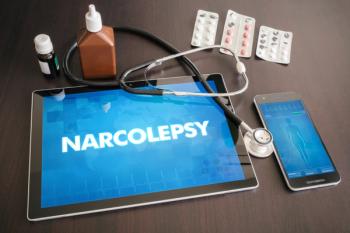Optimizing Narcolepsy Management in Adult Patients

Panelists discuss the evolving treatment landscape for narcolepsy, highlighting the growing availability of personalized therapies, persistent challenges with diagnosis and access, and the importance of clinician advocacy and education to ensure timely, individualized care for patients.

Panelists discuss the critical importance of early diagnosis and personalized treatment in narcolepsy, using a case study to illustrate how tailored therapy—considering patient preferences, comorbidities, and lifestyle factors—can improve engagement, safety, and long-term outcomes.

Panelists discuss the importance of shared decision-making in narcolepsy care, emphasizing structured conversations that explore patient goals, treatment preferences, and concerns—while navigating practical barriers like insurance—so that therapy selection is personalized and collaborative, often requiring a multimodal approach for optimal outcomes.

Panelists discuss the clinical and practical advantages of pitolisant for patients with frequent cataplexy and concerns about controlled substances, highlighting its dual efficacy, favorable safety profile, and flexible dosing as key features that support a patient-centered, stigma-conscious approach to narcolepsy care.

Panelists discuss how behavioral strategies—including structured sleep routines, scheduled naps, dietary adjustments, light therapy, and cognitive behavioral support—are essential components of comprehensive narcolepsy management, reinforcing that individualized, nonpharmacologic interventions can significantly improve daily function and long-term outcomes.

Panelists discuss the importance of setting realistic expectations when initiating pitolisant for narcolepsy, emphasizing consistent daily use, gradual titration, and patient-centered measures of success, while accounting for external stressors, lifestyle factors, and the need for occupational accommodations to support long-term functional outcomes.

Panelists discuss the multifaceted barriers to medication adherence in narcolepsy, highlighting access issues, forgetfulness, mood disorders, and adverse effects, while emphasizing practical tools like habit-stacking, sleep logs, and routine reinforcement to support consistency and reframe treatment as a lifelong support rather than a temporary fix.

Panelists discuss a woman aged 26 years with narcolepsy type 2 whose modafinil is ineffective and causes adverse effects, highlighting solriamfetol and oxybates as treatment options while emphasizing personalized care that integrates medication with lifestyle and behavioral strategies.

Panelists discuss individualized, shared decision-making approaches to newer narcolepsy treatments like low-sodium oxybate, traditional oxybate, and solriamfetol, emphasizing lifestyle interventions such as the RISE UP protocol and addressing factors like iron deficiency, while highlighting the importance of tailored monitoring and patient-provider trust for long-term management.

Panelists discuss the importance of building a flexible, trusting long-term relationship with regular, personalized follow-ups that actively explore patient challenges and adapt treatment as life changes occur, while emphasizing persistence in overcoming insurance barriers, the benefits of telehealth for access, and the critical role of psychosocial support including education and cognitive behavioral therapy (CBT) to help patients manage narcolepsy’s impact on daily life.

Panelists discuss the need for individualized narcolepsy management using complementary therapies like pitolisant, solriamfetol, and lower-sodium oxybate; emphasize persistence in overcoming insurance barriers through detailed documentation; and highlight practical adherence strategies alongside patient education and psychosocial support—including resources like Project Sleep and cognitive behavioral therapy—to optimize outcomes.

Explore effective strategies for managing narcolepsy, including personalized treatment plans, medication options, and lifestyle interventions for improved patient outcomes.


